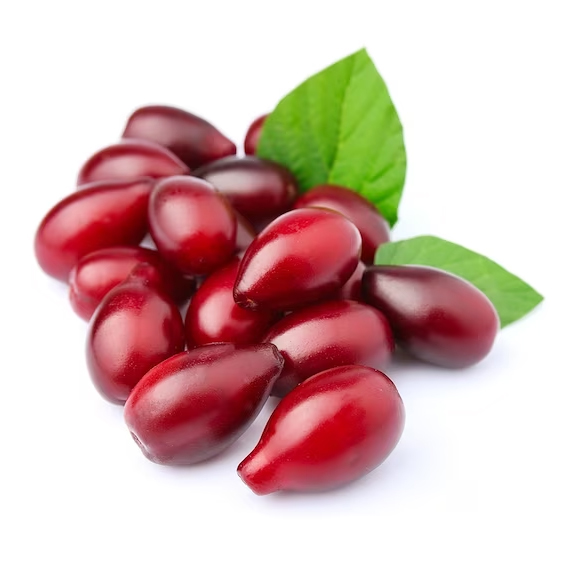Cornel
Cornus mas, L. – Cornaceae

Cornel is a wild plant, which is widely distributed in Europe and Asia. The fruit is a drupe, red in color, which is widely used in food. The fruit can be eaten fresh, but recently it is increasingly used dried. Cornel fruit is very rich in vitamin C, tannins, sugars and organic acids. This plant contains a much higher concentration of vitamin C than oranges. Due to its very complex composition, large number of active principles, cornel fruit is widely used in traditional herbal medicine.

A large number of researches have been done since 2000 until 2016, where it was discovered that conrnel has a very strong anti-oxidative, anti-inflammatory effect (it can be used as an auxiliary agent in the treatment of inflamed bowel diseases), as well as antimicrobial activity (it showed a positive effect in the treatment of malaria – this shows that cornel is antiprotozoic). It plays a very important role in the treatment of urinary tract infections in men and women, and it can also be recommended as an aid in the treatment of kidney stones. The fruit of the cornel also has an anti-cancer effect. It has shown a positive effect in the treatment of gastrointestinal tract complaints, aids digestion, protects the liver (hepatoprotective effect), stops diarrhea and helps the function of the cardiovascular system. If, along with bowel disorders and diarrhea, fever occurs, cornel bark tea is recommended, and cornel fruit can be recommended in the treatment of anemia, insulin resistance, diabetes, as well as for faster healing of wounds.
References
- Cornus mas: a review on traditional uses and pharmacological properties
- Cornus mas L. Increases Glucose Uptake and the Expression of PPARG in Insulin-Resistant Adipocytes
- Cornus Mas L improves Antioxidant Status in the Liver, Lung, Kidney, Testis and Brain of Ehrlich Ascites Tumor Bearing Mice
- Potential for Prebiotic Stabilized Cornus mas L. Lyophilized Extract in the Prophylaxis of Diabetes Mellitus in Streptozotocin Diabetic Rats
